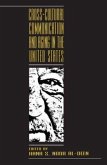Speaking, texting, talking, presenting, reading an audience, body language, negotiations, sales pitches, avoiding clichés and gaffes, and all forms of communicating are covered in this award-winning, engaging, and comprehensive guide to effective communication! Powerful oratory. Persuasive arguments. Succinct business pitches. Speeches and emails. From cave walls to the printing press, and from Cicero to TED talks, The Handy Communication Answer Book traces the history, explains the concepts, and examines the skills needed to master effective and efficient communication for every occasion. Providing insights and advice, this useful primer looks at how to improve verbal, nonverbal, and written communications. Communication is a massive topic, a subject that fascinates and frustrates people. It varies by context, audience, purpose, and form. From speeches to body language and from legalese and technical writing to how the Internet changed everything, this informative book brings the intricacies of speaking, writing, listening, and reading into focus through its well-researched answers to nearly 800 common communication questions, such as ... What are some common barriers to communication? How did early radio affect American politics? How has the Internet affected traditional media industries like radio, newspapers, and television? What was Aristotle's influence on rhetoric? What affects clarity in written communication? When should I call someone on the telephone instead of sending an email? How should I deal with a social media troll? Why do so many people fear public speaking? What are the characteristics of a good speaker? Is public speaking on video or television different than public speaking to a live audience? How can I be a more engaging presenter? How can I stop saying things like "um" and "ah"? How can I project authority without being overbearing? How can I make sure I stick to my allotted presentation time? How can I make my audience members feel like they're having a conversation with me? When should I use a microphone? How can I better communicate up the corporate ladder? How does plain language and simple style fit into academic communication? This informative book also includes a helpful glossary of terms, bibliography, and an extensive index, adding to its usefulness.
Hinweis: Dieser Artikel kann nur an eine deutsche Lieferadresse ausgeliefert werden.
Hinweis: Dieser Artikel kann nur an eine deutsche Lieferadresse ausgeliefert werden.








